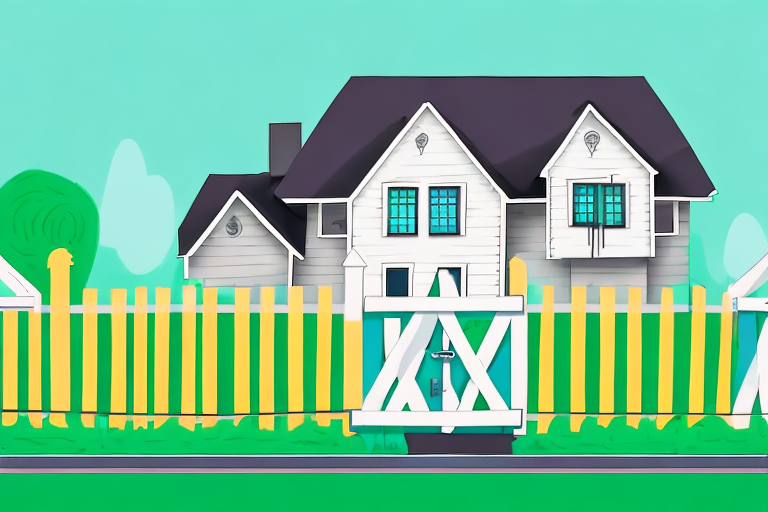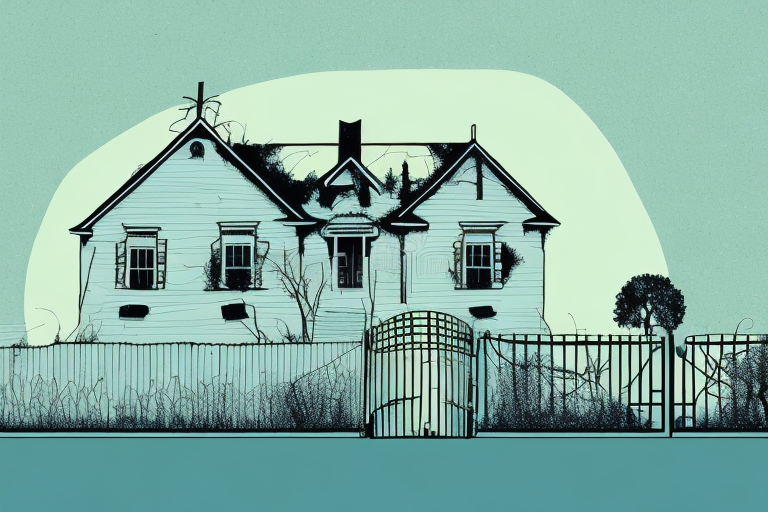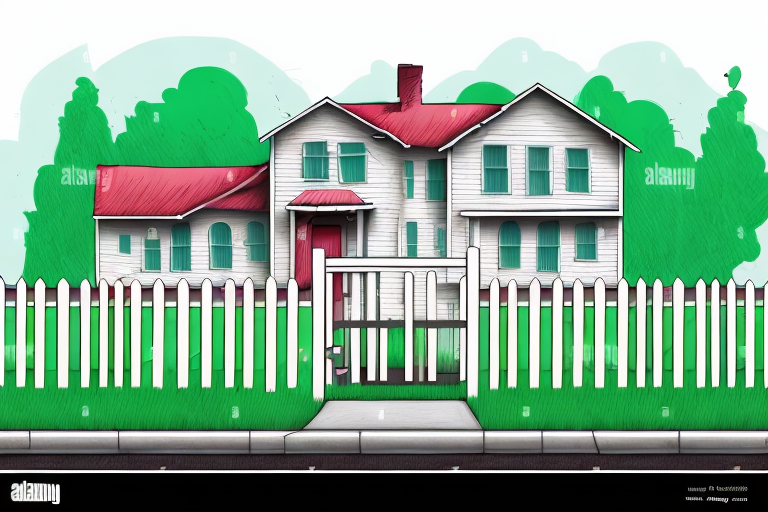Property ownership is a fundamental right that deserves legal protection. Property law governs the rights and duties of property owners. Every property owner must not only be aware of the legal framework surrounding their property, but also understand how property law protects their rights. This article explores the principles of property law, the types of property, the legal framework for property rights, and the role of property law in dispute resolution.
Understanding Property Law
Definition of Property Law
Property law is the legal framework that governs the ownership, use, and transfer of property. It covers a wide range of legal issues that relate to real property, which includes land and any permanent structures attached to it. Personal property, such as vehicles or furniture, is also included in property law.
What is property law? it is a complex area of law that is essential to understanding how property rights are established and protected. This area of law is constantly evolving, and it is important for property owners to stay up-to-date with the latest legal developments that may affect their property rights.
Types of Property: Real and Personal
There are two types of property: real property and personal property. Real property includes land and any permanent structures attached to it, such as buildings. Personal property, on the other hand, includes movable items such as vehicles, furniture, and jewelry. In property law, the ownership, use, and transfer of both types of property are governed by different legal principles.
Real property is often the subject of intense legal disputes, particularly when it comes to issues such as zoning, land use, and eminent domain. These disputes can be complicated and require the expertise of experienced property law attorneys to resolve.

Key Principles of Property Law
The key principles of property law include the right to possess, use, exclude, and transfer property. These principles form the foundation for property law, and they are intended to protect the rights of property owners from interference or harm by third parties.
The right to possess property means that the owner has the exclusive right to occupy and use the property. The right to use property means that the owner has the right to use the property in any way that is legal and does not interfere with the rights of others. The right to exclude others means that the owner has the right to prevent others from using or occupying the property without permission. The right to transfer property means that the owner has the right to sell, gift, or otherwise transfer ownership of the property to another person.
These principles are not absolute, however, and they may be subject to limitations imposed by law or by the terms of a contract. For example, zoning laws may restrict the use of certain types of property, and a lease agreement may limit the right to transfer ownership of leased property.
Overall, property law is a complex and important area of law that affects property owners in a variety of ways. Whether you are a homeowner, business owner, or investor, it is important to understand your rights and obligations under property law to protect your interests and ensure that your property is properly managed and maintained.
Rights of Property Owners
Property ownership is a fundamental right that is protected by law. Property owners have certain rights that are essential to their ownership and use of their property. These rights are designed to protect property owners and their interests, while also ensuring that they comply with local laws and regulations.
Right to Possess
The right to possess property is one of the most important rights of property owners. This means that property owners have the legal right to occupy and use their property, as long as they do not violate any other laws or regulations. This right is essential to the ownership of property, as it allows property owners to control their property and use it in a manner that is consistent with their needs and interests.
For example, if you own a house, you have the right to live in it and use it as your primary residence. You also have the right to rent it out to others, or use it as a vacation home, as long as you comply with local laws and regulations.
Right to Use
Property owners also have the right to use their property in a manner that is consistent with local laws and regulations. This includes the right to improve the property, build structures, and engage in other activities that are related to the lawful use of the property.
For example, if you own a piece of land, you have the right to build a house or other structure on it, as long as you comply with local zoning laws and regulations. You also have the right to make improvements to the land, such as planting trees or building a fence, as long as you do not violate any other laws or regulations.
Right to Exclude
The right to exclude is the right of property owners to prevent others from entering or using their property without permission. This is a fundamental right that is necessary to protect the safety and privacy of property owners and their families.
For example, if you own a house, you have the right to prevent others from entering your property without your permission. This includes the right to lock your doors and windows, and to install security systems to protect your property and your family.
Right to Transfer
Finally, property owners have the right to transfer their property to others. This includes the right to sell, lease, or gift their property to others, as long as they comply with the legal requirements for such transactions.
For example, if you own a house, you have the right to sell it to another person, or to lease it to a tenant. You also have the right to gift your property to a family member or friend, as long as you comply with the legal requirements for such transactions.
Overall, the rights of property owners are essential to the ownership and use of property. These rights are designed to protect property owners and their interests, while also ensuring that they comply with local laws and regulations. Whether you own a house, a piece of land, or any other type of property, it is important to understand your rights as a property owner and to use them responsibly.

Legal Framework for Property Rights
Property rights are a fundamental aspect of any legal system, as they provide individuals and businesses with the ability to own and control assets. In this article, we will explore the legal frameworks that protect property rights in different parts of the world.
Common Law System
The common law system is the legal framework in which judges interpret the law based on previous court decisions, rather than relying solely on written statutes or regulations. In this system, property rights are protected by common law principles that are developed over time through case law.
For example, in the United States, the common law system protects property rights by recognizing the right to exclude others from using or accessing one’s property. This means that property owners have the right to prevent others from entering their land, using their possessions, or interfering with their business activities.
Similarly, in England, the common law system protects property rights through the concept of “adverse possession,” which allows individuals who have occupied a piece of land for a certain period of time to claim ownership of that land, even if they do not have legal title to it.
Civil Law System
Unlike the common law system, the civil law system relies mainly on written statutes and codes rather than previous court decisions. In this system, property rights are protected by civil law principles that are codified in the law.
For example, in France, property rights are protected by the Civil Code, which outlines the rights and obligations of property owners. The Code recognizes the right to own property, the right to use property, and the right to dispose of property through sale or transfer.
Similarly, in Germany, property rights are protected by the Civil Code, which recognizes the right to own, use, and dispose of property. The Code also provides for the protection of property against unlawful interference by third parties.
Customary and Indigenous Property Rights
Customary and indigenous property rights are legal systems that are based on traditional cultural practices and beliefs. These systems recognize the property rights of indigenous communities and protect them under the law.
For example, in many African countries, customary law recognizes the communal ownership of land by indigenous communities. This means that land is not owned by individuals, but rather by the community as a whole. The community has the right to use and manage the land, but cannot sell or transfer it to outsiders.
Similarly, in Australia, indigenous property rights are recognized under the Native Title Act, which allows indigenous communities to claim ownership of land that they have traditionally used and occupied. The Act also provides for the protection of indigenous cultural heritage on the land.
In conclusion, property rights are protected under different legal frameworks around the world. Whether through common law principles, civil law codes, or customary and indigenous legal systems, property owners have the ability to own, use, and dispose of their assets, and are protected against unlawful interference by others.

Property Law and Dispute Resolution
Property law is an area of law that governs the various forms of ownership and tenancy in real property and personal property. Property disputes can arise in many different forms, such as boundary disputes, easement disputes, and landlord-tenant disputes. In such situations, it is important to have a clear understanding of the various methods of dispute resolution available.
Mediation and Arbitration
Mediation and arbitration are alternative dispute resolution methods that can be used in property disputes. These methods allow property owners to resolve disputes outside of court in a more efficient and cost-effective manner. Mediation involves a neutral third party who helps the parties communicate and negotiate a settlement. Arbitration involves a neutral third party who listens to the evidence presented by both parties and renders a binding decision.
One of the benefits of mediation and arbitration is that they can be less time-consuming and less expensive than traditional litigation. Additionally, these methods can help to preserve relationships between the parties, as they allow for more open communication and collaboration.
Litigation in Property Disputes
Litigation is the traditional method of resolving disputes through the court system. Property owners may file a lawsuit if they believe their property rights have been violated, and the court will render a judgment based on the evidence presented. Litigation can be a lengthy and expensive process, but it may be necessary in certain situations where other methods of dispute resolution have failed.
In property disputes, litigation can involve a wide range of legal issues, such as contract law, tort law, and property law. Property owners should consult with an experienced attorney to determine whether litigation is the best course of action in their particular situation.
Role of the Courts in Property Law
The role of the courts in property law is critical, as they are responsible for interpreting and enforcing property rights. Property owners can rely on the courts to provide a fair and impartial judgment in the event of a dispute over property rights.
When a property dispute arises, the court will consider a variety of factors, such as the language of the relevant contracts, the actions of the parties involved, and the applicable laws and regulations. The court will then render a decision based on the evidence presented and the relevant legal standards.
Overall, the courts play an essential role in ensuring that property rights are respected and protected. Without the courts, property owners would have limited options for enforcing their rights and resolving disputes.
Conclusion
Property law plays a critical role in protecting the rights of property owners. Every property owner must understand the key principles of property law and the legal framework that governs their rights. They must also be aware of the dispute resolution methods available to them should a dispute arise. By upholding the rights of property owners, property law ensures that individuals can maintain their ownership and enjoy all of the benefits associated with it.
More to read: Ways of incorporating your business into your estate plan
